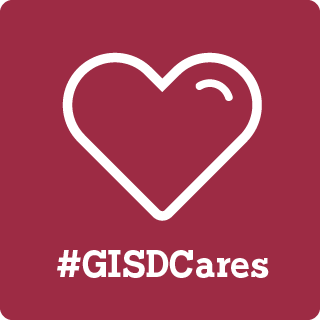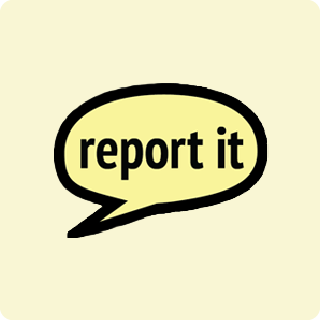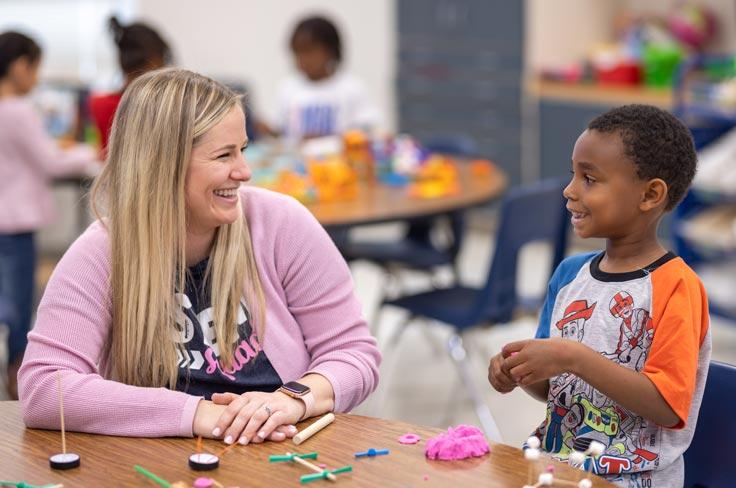
Kindergarten
Kindergarten marks a child's first step into their school career.

Why Kindergarten?
Kindergarten is the foundation of a child's learning and serves as a bridge to the classroom. It builds active-thinking life skills, such as social, emotional, and problem-solving skills. Kindergarteners also develop skills such as:
- listening, speaking, reading and writing
- working memory
- conceptual knowledge
- processing fluency
Language and literacy development is one of the main focuses of Kindergarten.

What we offer
At Garland ISD, our program uses fully-trained teachers that are:
- specialists in early childhood education and development
- graduates of the state’s Reading Academies program (or those working toward completion)
- skilled in instructional strategies for language and literacy
Your child will learn skills like:
- the letters of the alphabet and letter-sound relationships for reading and spelling words
- basic math such as counting to 100, identifying numbers to 20, and recognizing coins
- social abilities such as working, learning and getting along with others
- science knowledge using exploration and observations
- fine arts foundations and physical skills
Our Kindergarten program also allows for whole group and small group instruction. Learning is based on the Texas Essential Knowledge and Skills (TEKS) curriculum.


Ready to enroll?
We're excited to welcome your family to Garland ISD! Learn about the process and get started on our enrollment page:
Skills needed for Kindergarten
Many parents ask what developmental milestones their child needs for kindergarten. See below for a list of what most children can do the following by age five.
Note: This checklist is not a substitute for a standardized, validated developmental screening.
Development milestone checklist
Expand AllLearning, thinking and problem-solving
- Counts 10 or more things
- Can draw a person with at least six body parts
- Starts to understand time
- Can print some letters or numbers
- Copies a triangle and other geometric shapes
- Knows about things used every day (ex. money or food)
- Tells you what they think is going to happen in a book
Social & Emotional
- Wants to please and be like friends
- More likely to agree with rules
- Likes to sing, dance and act
- Can tell what is real and make believe
- Shows more independence
- Is sometimes demanding and sometimes cooperative
Language and Communication
- Speaks clearly
- Tells a simple story using full sentences
- Uses future tense (ex. "Grandma will be here")
- Says name and address
Physical development
- Stands on one foot for 10 seconds or longer
- Hops, and may be able to skip
- Uses a fork and spoon. Sometimes may use a knife
Information adapted from "Caring for your Baby and Young Child: Birth to Age 5" and "Bright Futures: Guidelines for Health Supervision of Infants, Children and Adolescents" by the American Academy of Pediatrics.

Identifying gifted children
Young children that are gifted academically may:
- Walk and talk at an early age
- Have a large and advanced vocabulary
- Learn rapidly and easily
- Read at an early age
- Able to entertain themselves for long blocks of time
- Remember a large amount of information
- Consistently organize, sort and classify things
- Have a heightened curiosity
- Fantasize/daydream often
- Be self-motivated and self-sufficient
- Show sensitivity to other people's feelings
- Practice perfectionism
















